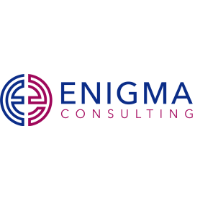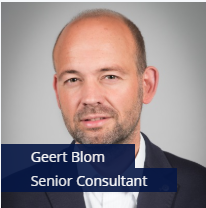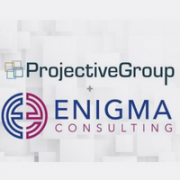License application for payment services in 5 steps
| 27-9-2019 | treasuryXL | Enigma Consulting
License applications from DNB: Enigma knows what is required!
If a business processes payment transactions or wants to become an account information service provider (AISP) or payment initiation service provider (PISP), it requires a license from De Nederlandsche Bank (DNB).
The consultants at Enigma are highly experienced in license applications. Our clients often have widely divergent reasons for applying for a licence. For example:
- Innovative companies that wish to utilise the opportunities offered by new payment rules for account information services and payment initiation services, such as fintech businesses and accounting software providers.
- UK-based businesses that have decided to apply for a license in the Netherlands and to serve Europe from here because of the consequences of Brexit.
- Asian and American companies that wish to use the Netherlands as a base for setting up their worldwide Payment Gateway.
- Companies that can no longer utilise exceptions that were possible in PSD1 because of PSD2 and are therefore applying for a license to operate as a payment service provider.
We have a multidisciplinary team, which offers the benefit of us being able to offer all areas of expertise required for license applications. The result is an application of which all elements meet the quality criteria of the supervisory body, which means a quicker assessment and granting of a license by the DNB.
You no longer need to be a bank to offer payment services. The Dutch Act on Financial Supervision applies in the Netherlands for the purpose of increasing competition and protecting consumers. This law makes it possible for payment institutions to offer payment services.
The law differentiates between 8 different types of payment service providers.
There are the classic payment service providers and electronic money institutions, but since the introduction of the PSD2 European payment guideline, there are also newer variants of account information service providers (AISPs) and payment initiation service providers (PISPs). Payment services offered include the administration of bank accounts, the transfer, deposit or receipt of funds, or the issuing or acceptance of payment instruments (such as cards).
So when is a licence required for a service? And what are the criteria that must be met?
A successful licence application for each type of payment institution is a question of thorough preparation and adequate quality assurance.
The steps required for an efficient, successful application at a glance:
1. Check whether a licence is required to offer the service
A payment service does not necessarily require a licence. Exceptions include services in which payment is made with a payment instrument with limited options for use. Neither is a license required if transactions take place in cash only and no bank account is involved.
2. If a licence is required, check whether an exemption applies
If step one indicates that a licence is required, check whether exemptions apply. A number of conditions need to be met in order to make use of that exemption. We have listed 3 below.
- Payment services are intended exclusively for people living in the Netherlands
- The monthly volume is less than 3 million Euros
- Asset segregation is managed by means of a trust account, bank guarantee, or comparable guarantee
If the conditions for an exemption appear to be met, then this also needs to be applied for from DNB. This application is also subject to considerable requirements. If these requirements can be met and the application for a licence has been submitted, the DNB will assess whether an exemption should be granted. If so, they will enter the exempted payment service provider into the public register.
3. Prepare the file and make the necessary organisational changes
Having completed the first 2 steps, it is clear that a licence is required and that the service does not qualify for an exemption. In that case, the payment institution must meet various criteria to be able to offer its services. These include:
- Demonstrating the reliability and suitability of policy makers
- The integrity of the company’s operations
- Controlled governance
- Surety of the funds
- Evaluation of the day-to-day policy makers
- Minimum equity and solvency requirements
- No Objection certificate
This is about managing operational processes and business risks, such as safeguarding the funds of the payment institution’s clients. Policy and procedures, such as a client acceptance policy, transaction monitoring, a compliance charter, and a procedure for reporting irregular transactions need to be formulated. In most cases, a ‘risk management’ policy needs to be formulated and a risk & compliance officer needs to be appointed.
4. Submit the application to De Nederlandsche Bank
All the supporting documentation for the application then needs to be submitted to the DNB. The application form that must to be completed and signed serves as the basis. The DNB decides whether to grant a licence within three months of receipt of a license application from a payment institution. Note that the three months only start once all the necessary documentation has been received. There are costs involved in applying for a licence from the DNB.
Enigma Consulting’s experience is that the DNB usually asks various questions and that the lead time for a licence application normally exceeds 3 months.
5. Implement the new policy and corresponding procedures in the organisation
When compiling the file, the implementation of specific policy and corresponding procedures in the payment institution is already a big step. Ensure these activities have actually been implemented by the company before the licence is granted. Do not underestimate this process, because depending on the size of the organisation, this step can be moderately to very resource intensive.
Experience
Thanks to Enigma Consulting’s extensive experience of the application procedure and short lines of communication with DNB, they can advise and support you in each step of the application process, whether it involves an application for an exemption, or a licence for a payment services provider, electronic money institution, account information services provider, or payment initiation services provider.
There is also the option of temporary deployment of a risk & compliance officer to share best practice and train your staff internally. Enigma possesses considerable experience in all stages of the application process. They can assist you in compiling the file and in setting up your organisational processes.
Contact Enigma Consulting with no obligation if you would like to discuss your objectives..













